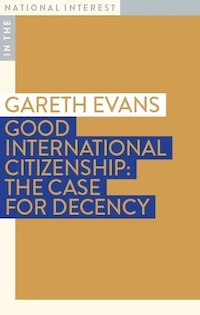Public ideas
The case for randomness
Few would question the idea that in a democracy, representatives should be chosen by ballot and public servants by meritocracy.
Nick Gruen has brought to our attention a third option. Writing in China Daily historian David Cottam puts the case for selection by lottery: Is selection by “sortition” a way to revitalize government?. He cites historical examples, and reminds us that we accept random selection in certain realms, such as selection of juries and appointments to citizens’ deliberate mechanisms.
He tempers his idea by suggesting that there may be some education or meritocratic criteria to select the pool to take place in the lottery. Also to get a representative sample of the population, some stratification may be necessary.
Random selection of middle-ranking bureaucrats, he argues, protects against a selection bias that rewards loyalty to political or administrative bosses, or to an established organizational or party line.
Radical? Perhaps when people reflect dispassionately on the breaks that have seem them promoted and elected, and the situations where they missed out, they will recognize that a good deal of randomness is at play.
Always look on the bright side
JK Galbraith said “pessimism always has an air of authority”.
But if articulated clearly optimism too can have an air of authority.
Writing on his Substack site, Beyond the Faultlines, Michael Liffman provides an edited extract of the Wyndham City Barry Jones Oration, delivered on September 18 by Gareth Evans: Looking on the bright side: the risks – and rewards – of political optimism.
Evans starts with 12 grounds for pessimism – 7 global, 5 domestic. The usual suspects are listed – global warming topping the global list, generational inequality and still-present racism appearing on the domestic list.
In a more upbeat mood he goes on to list 11 domestic pestilences, now eradicated, that were part of the 1960s landscape. The White Australia Policy tops this list.
His “observation from long international experience is that very few problems totally defy rational solution“, a point he illustrates with two significant Australian achievements in the difficult world of global diplomacy.

He reminds us of the strength of our Australian democratic institutions: “we have a system which is not condemned to gridlock, one that does make change possible if governing parties want it badly enough”.
But he has a warning for our current government:
Nervous, defensive crouching, cautious plodding, and seeing survival in office as being above all about making yourself a small target won’t cut it. Nor will focusing overwhelmingly on the risks of offending some sections of the community rather than the rewards of exciting many more of them.
Evans has published his ideas in a Monash University National Interest book: Good international citizenship: the case for decency.
Michael Liffman’s Substack Beyond the faultlines, a forum for nuanced conversations, is always a rich source of public ideas, that generally defy classification to any ideology.